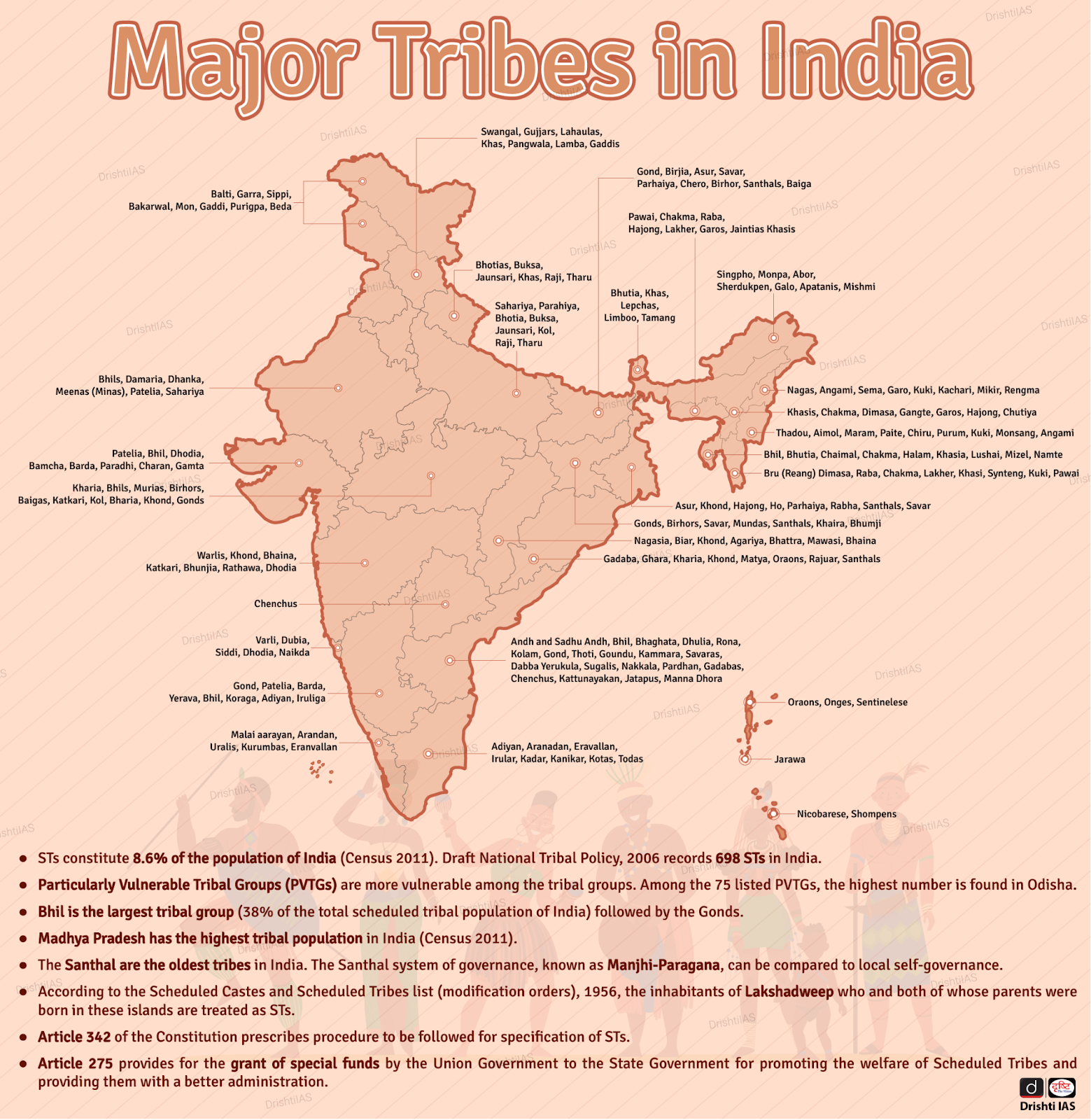Madhya Pradesh
MP Leads the Nation in PESA Act Implementation
- 24 Jul 2025
- 4 min read
Why in News?
Madhya Pradesh has emerged as a national leader in implementing the Panchayats (Extension to Scheduled Areas) Act, 1996 (PESA), across 88 tribal blocks, empowering tribal communities to resolve disputes locally through traditional Chaupals.
- This empowerment initiative has successfully removed the dependency on police stations for minor conflicts, proving a boon for the tribal population in the state.
Key Points
- National Recognition For MP’s Efforts:
- The Ministry of Panchayati Raj has highlighted the state's success stories in a special booklet, including success stories from Madhya Pradesh, further acknowledging the state’s role in setting a national benchmark.
- Dispute Resolution & Financial Empowerment under the Act:
- Over 8,000 disputes, including family and land-related issues, have been resolved through community meetings called Chaupals.
- The Act encourages a collaborative approach to justice, maintaining tribal traditions while ensuring the community's well-being.
- The state's efforts also include financial empowerment, with the opening of over 11,000 bank accounts to ensure smooth financial transactions for the tribal communities.
- Over 8,000 disputes, including family and land-related issues, have been resolved through community meetings called Chaupals.
- Committees Established under the Act:
- Several committees work to oversee the implementation of the PESA Act, such as:
- Peace and Dispute Redressal Committee
- Forest Resource Planning and Control Committee
- Sahayogi Matru Samiti (Mothers' Cooperation Committees)
- These committees play a vital role in ensuring the smooth functioning of the Act and its goals in the state.
- Several committees work to oversee the implementation of the PESA Act, such as:
PESA Act, 1996
- About:
- The PESA Act was enacted on 24th December 1996 to ensure self-governance for people living in tribal areas, called Scheduled Areas, through traditional village assemblies known as Gram Sabhas.
- The Act extended the provisions of Panchayats by providing self-tribal rule to the tribal areas of Fifth Schedule states.
- Legislation:
- The Act defines Scheduled Areas as those mentioned in Article 244(1), which states that the Fifth Schedule applies to Scheduled Areas and Scheduled Tribes in states other than Assam, Meghalaya, Tripura, and Mizoram.
- Scheduled Areas of India, which are areas notified by the President as predominantly inhabited by tribal communities.
- 10 states have notified Fifth Schedule areas that cover (partially or fully) several districts in each of these states.
- These include Andhra Pradesh, Chhattisgarh, Gujarat, Himachal Pradesh, Jharkhand, Madhya Pradesh, Maharashtra, Odisha, Rajasthan, and Telangana.
- Significant Provisions:
|
Provisions |
Description |
|
Acts as a forum for community participation, overseeing development plans. |
|
|
Village-level Institutions |
Establishes Gram Panchayat, Gram Sabha, and Panchayat Samiti for local services. |
|
Powers & Functions |
Grants significant powers to manage resources and regulate economic activities. |
|
Consultation |
Mandates consultation with the Gram Sabha before development projects in Scheduled Areas. |
|
Funds |
Ensures funds are transferred to the Gram Panchayat for effective functioning. |
|
Land Rights |
Protects tribal land rights, requiring consent for land acquisition or transfer. |
|
Cultural & Social Practices |
Safeguards tribal customs and prohibits interference with cultural practices. |







